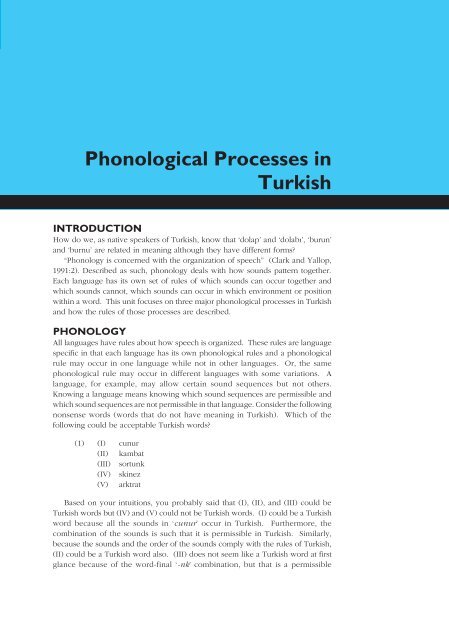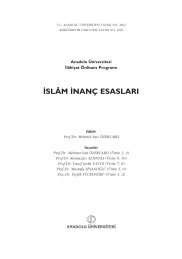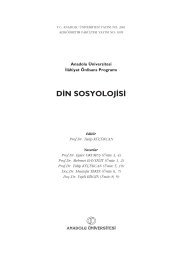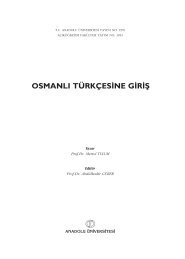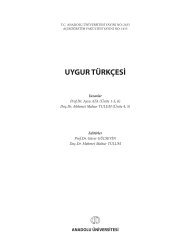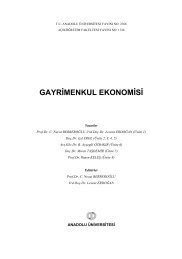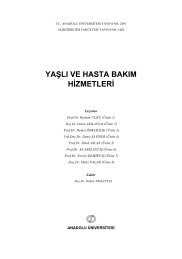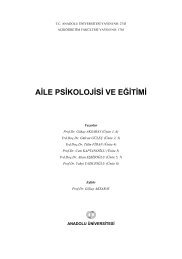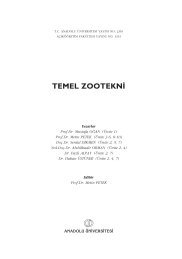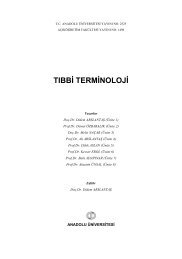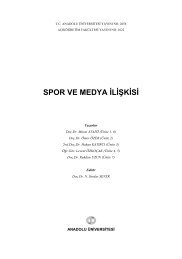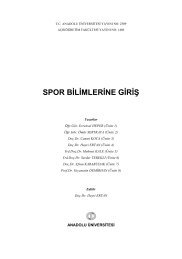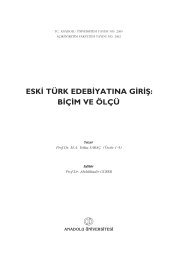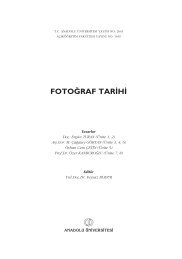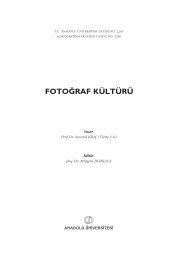turkish phonology and morphology (türkçe ses ve b‹ç‹mb‹lg‹s‹)
turkish phonology and morphology (türkçe ses ve b‹ç‹mb‹lg‹s‹)
turkish phonology and morphology (türkçe ses ve b‹ç‹mb‹lg‹s‹)
Create successful ePaper yourself
Turn your PDF publications into a flip-book with our unique Google optimized e-Paper software.
Phonological Proces<strong>ses</strong> in<br />
Turkish<br />
INTRODUCTION<br />
How do we, as nati<strong>ve</strong> speakers of Turkish, know that ‘dolap’ <strong>and</strong> ‘dolab›’, ‘burun’<br />
<strong>and</strong> ‘burnu’ are related in meaning although they ha<strong>ve</strong> different forms?<br />
“Phonology is concerned with the organization of speech” (Clark <strong>and</strong> Yallop,<br />
1991:2). Described as such, <strong>phonology</strong> deals with how sounds pattern together.<br />
Each language has its own set of rules of which sounds can occur together <strong>and</strong><br />
which sounds cannot, which sounds can occur in which environment or position<br />
within a word. This unit focu<strong>ses</strong> on three major phonological proces<strong>ses</strong> in Turkish<br />
<strong>and</strong> how the rules of those proces<strong>ses</strong> are described.<br />
PHONOLOGY<br />
All languages ha<strong>ve</strong> rules about how speech is organized. These rules are language<br />
specific in that each language has its own phonological rules <strong>and</strong> a phonological<br />
rule may occur in one language while not in other languages. Or, the same<br />
phonological rule may occur in different languages with some variations. A<br />
language, for example, may allow certain sound sequences but not others.<br />
Knowing a language means knowing which sound sequences are permissible <strong>and</strong><br />
which sound sequences are not permissible in that language. Consider the following<br />
nonsense words (words that do not ha<strong>ve</strong> meaning in Turkish). Which of the<br />
following could be acceptable Turkish words?<br />
(1) (I) cunur<br />
(II) kambat<br />
(III) sortunk<br />
(IV) skinez<br />
(V) arktrat<br />
Based on your intuitions, you probably said that (I), (II), <strong>and</strong> (III) could be<br />
Turkish words but (IV) <strong>and</strong> (V) could not be Turkish words. (I) could be a Turkish<br />
word because all the sounds in ‘cunur’ occur in Turkish. Furthermore, the<br />
combination of the sounds is such that it is permissible in Turkish. Similarly,<br />
because the sounds <strong>and</strong> the order of the sounds comply with the rules of Turkish,<br />
(II) could be a Turkish word also. (III) does not seem like a Turkish word at first<br />
glance because of the word-final ‘-nk’ combination, but that is a permissible


